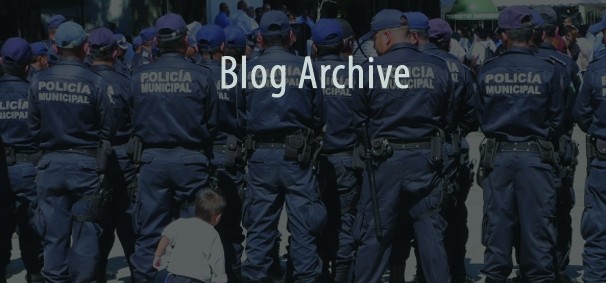On March 3, the Centre for International Governance Innovation (CIGI) and the North-South Institute (NSI) hosted a panel discussion on the findings of CIGI’s first eBook, The Future of SSR. Taking centre stage in the discussion were key people behind the eBook, including: CIGI Senior Fellow and eBook editor Mark Sedra, and contributors Nicole Ball from the Centre for International Policy and Senior Researcher at the North-South Institute Jennifer Salahub. The event was moderated by Roland Paris, Director at the Centre for International Policy Studies and Associate Professor at the University of Ottawa.
As Mark Sedra noted in his remarks, the recent uprisings in the Middle East and North Africa have both demonstrated the value of SSR and highlighted the shortcomings of traditional (train and equip) security assistance. He argued that the fact that the uprisings were partly a response to common experiences of brutality and humiliation at the hands of state security forces vindicates the SSR model’s emphasis on oversight and accountability.
The panelists agreed that one of the main challenges facing SSR today is that the model’s founding cases, the states of the former USSR and post-apartheid South Africa, are far removed from today’s SSR settings. These initial successes achieved in these post-authoritarian cases shaped the SSR model, but bear little resemblance to more recent SSR contexts like Iraq, Afghanistan, and Bosnia. Mark Sedra argued that SSR needs an updated model that is less reliant on ideal-type conditions, more humble and pragmatic, results rather than process focused, and based on political engagement and service delivery.
Nicole Ball remarked that the terrorist attacks of September 11 fundamentally altered the way SSR has been administered. While the SSR model has been widely adopted-even the US military has incorporated the language of SSR in its operational manuals-its core principles have been forgotten or ignored. The essence of what made SSR different from traditional security assistance, its focus on governance and democratic accountability, has been lost. Donors willing and eager to engage in conventional train and equip programs undermine those insisting-often unpopularly- on governance and oversight reforms, since local actors can find the assistance they want without any strings attached. A troubling outcome of the militarization of SSR is that the development community has retreated from a concept that it originally created.
Jennifer Salahub argued that looking at SSR through the lens of gender can help assess the model’s development, since engaging with women reveals weaknesses in service delivery that affect both men and women (as well as families). The first generation of SSR developed the tools necessary for gender-sensitive reform (DCAF gender toolkits, for instance), but second order problems remain, like difficulties retaining female officials, and a lack of progress addressing the root causes of gender-based inequality and violence. Salahub remarked that the political nature of SSR is clear when you consider the numerous political dynamics to be negotiated by reformers (international-regional-national-local-community-level).
Ultimately, as one participant pointed out, there is a huge gap between SSR’s ideals and what has been achieved. Closing that gap is a critical feature of the second generation SSR model outlined below. The concept of second generation SSR is not intended to replace the fundamental values or frameworks of the first generation model, but to adapt and update them to reflect the challenging contexts where SSR is most often implemented.
| Tendencies of First Generation SSR | Needs for Second Generation SSR |
| -process oriented | -results oriented |
| -rigid (assessment, consensus building, strategy design, implementation, review) | -flexible, iterative (based on finding entry points, building on successes) |
| -tends to measures inputs | -focuses on service delivery, interim security measures; results oriented |
| -technocratic | -fundamentally political |
| -short-term | -generational process |
| -short rotations of experts | -longer-term deployments |
| -works with like-minded actors, refuses to engage with unsavoury people (e.g. Islamists) | -real local ownership; engage with non-state justice and security providers |
| -ambitious liberal-democratic agenda | -principled, but with more practical, humble expectations |






 Visit the Centre for
Visit the Centre for